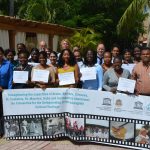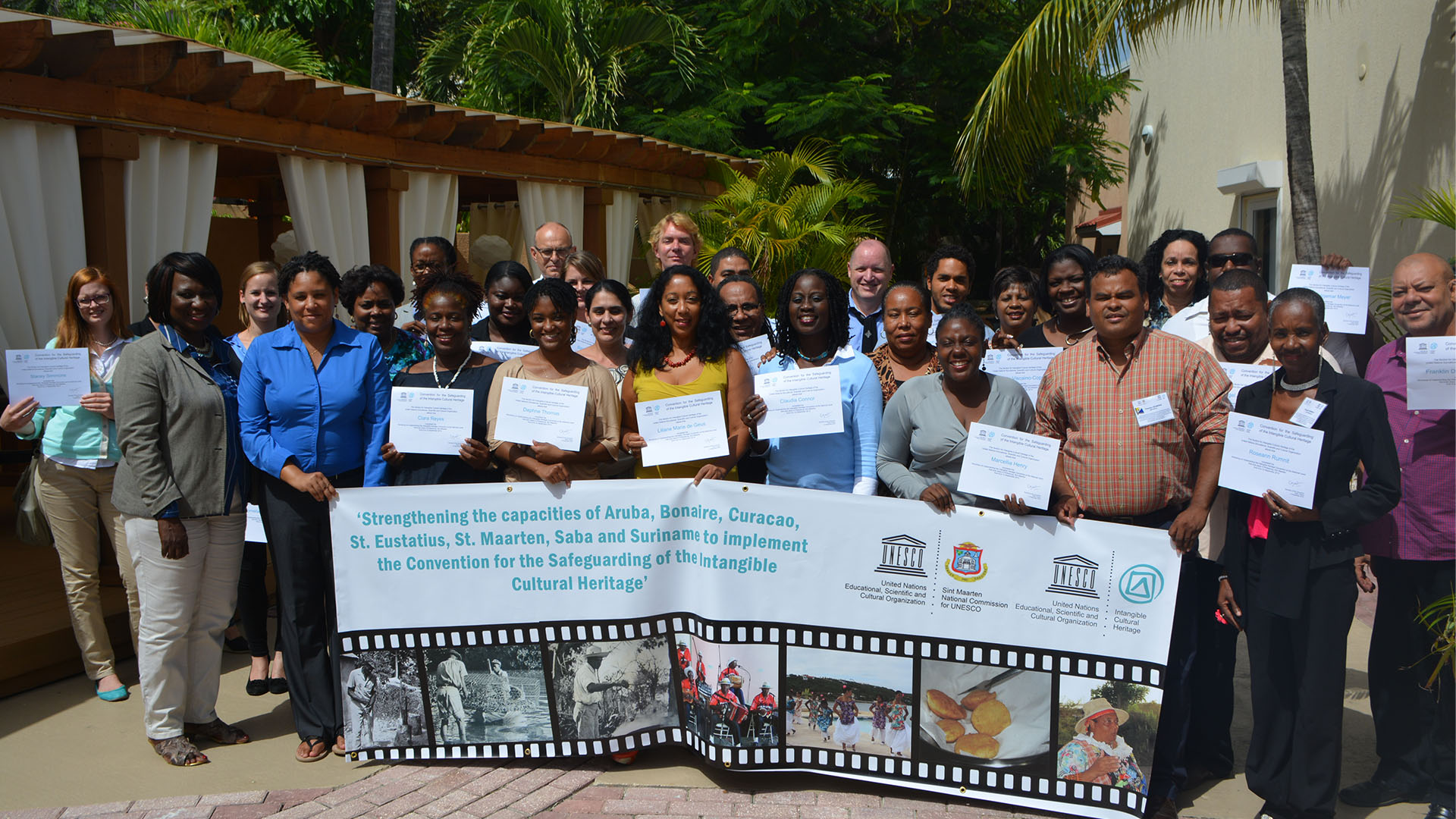UNESCO
The United Nations Educational, Scientific, and Cultural Organization, UNESCO is a specialized organization of the United Nation with the mission to contribute to building peace, combat poverty, sustainable development, and intercultural dialogue through education, science, culture, and communication.
UNESCO was established on November 16 1945 and her headquarter is in Paris.” Wikipedia https://www.unesco.org/en
UNESCO ANTILLES
On 10/10/2010, Unesco Antilles was terminated after 27 years existence within the Kingdom of the Netherlands and under the State Party of the Netherlands. Aruba with her separate status after 1986 could become an associate member of the UNESCO (October 20, 1987) and after 2010, Curaçao and St. Maarten also sought and obtained associate membership both on October 25, 2011.
The five island territories used to be the National Commission of the Netherlands Antilles (NUC Antilles) and had celebrated 25 years of existence in 2008. Each island territory had a representative in the NUC Antilles. For more than 25 years, they had worked together in the areas of education, culture, science, information, and communication. They exchanged information also within the regional context. The island territories were part of the UNESCO electoral area III of Latin America and Caribbean States. A culture of togetherness had grown between the islands.
UNESCO Netherlands - Bonaire, Saba i St. Eustatius
The result for Bonaire, Saba, and St. Eustatius after the constitutional change on October 10, 2010 was that they became part of The Netherlands as each a public entity and fell immediately in the UNESCO electoral area I of Western Europe and North American States. Not until per official gazette #180 in 2014 did Prins Willem Alexander decide to the change in the Decree regarding the National UNESCO Commission of the Netherlands. This regarding implementation practices and some other small changes because of the new Kingdom relations. A paragraph was added: “The Commission maintains contact with the public entities Bonaire, Saba and St. Eustatius. For meetings or other activities that are of special interest, this at the discretion of the Commission, the Commission will provide the public entities with the opportunity to have a representative participate in the relevant meeting or activity.”
https://www.unesco.nl/nl/dossier/unesco-in-de-caribische-delen-van-het-koninkrijk
The Netherlands became a member of UNESCO on January 1, 1947 and has ratified several UNESCO conventions throughout the years. The convention for the Safeguarding of the Intangible Cultural Heritage of 2003 was ratified in 2012 and counted immediately for Bonaire, Saba, and St. Eustatius as well.
The first conference on this convention and its meaning for the islands was held on Aruba in 2013. From the meeting came the Capacity building project for all the six islands plus Surinam. This project lasted 4 years from 2014-2018. The five-member delegation of Bonaire who participated in the project since the beginning was officially established as Unesco Working Group Bonaire on March 3, 2015.
http://www.unesco.nl/event/hoe-versterken-we-immaterieel-erfgoed-caribisch-nederland


